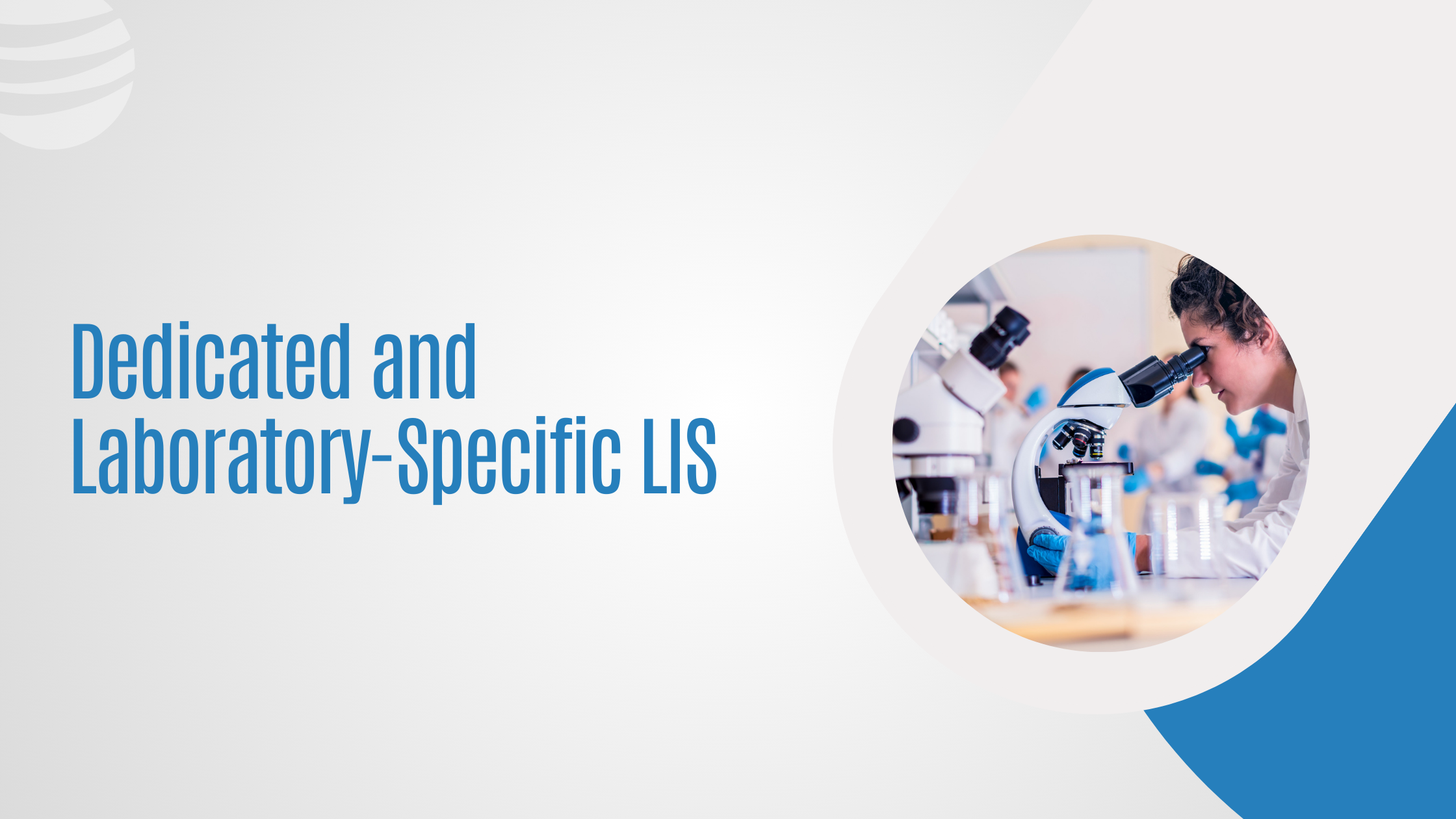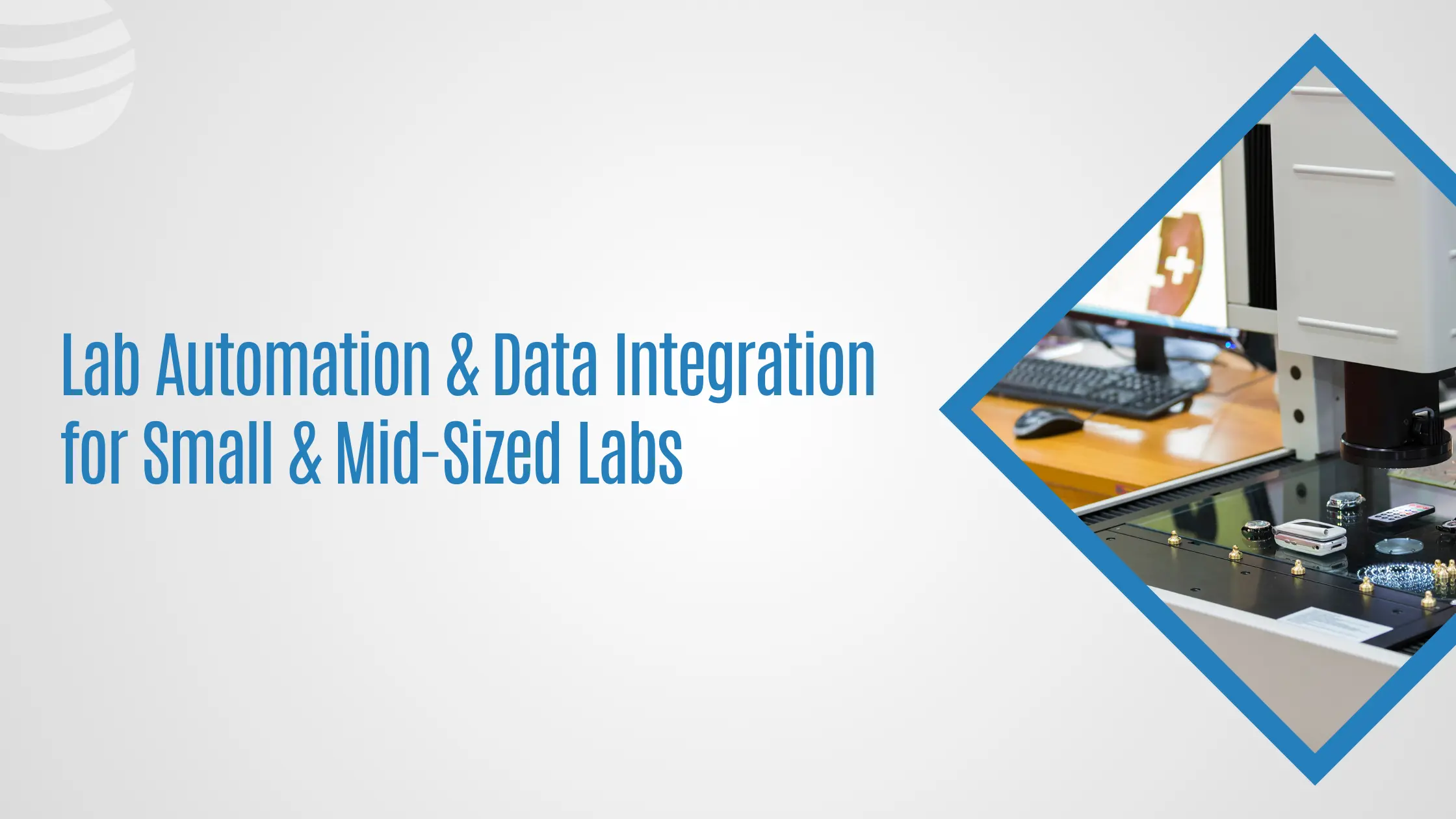

Dedicated and Laboratory-Specific LIS for Modern Labs
Laboratory LIS Systems, or Laboratory Information Systems, have evolved into essential tools for contemporary laboratories in the fast-paced, technologically advanced healthcare setting of today. These systems are pillar of laboratory operations since they simplify processes, increase data accuracy, and raise general efficiency. Dedicated, laboratory-specific LIS solutions are becoming increasingly important for labs trying to remain competitive and compliant as demand for accuracy and speed keeps rising.
Introduction to Laboratory LIS Systems
A Laboratory Information System (LIS) is a software solution designed to manage and process the vast amount of data generated in clinical and research laboratories. These systems handle everything from patient sample tracking and test result management to quality control and regulatory compliance. A well-implemented LIS can significantly reduce manual errors, optimize resource utilization, and provide real-time insights that drive better decision-making.
Importance of Dedicated LIS Solutions
While generic laboratory management software may suffice for smaller or less specialized labs, dedicated Laboratory LIS Systems offer tailored functionalities that address the unique needs of specific laboratory types. For example, a clinical lab might require advanced patient management features, while a research lab may need robust data analysis capabilities. By choosing a dedicated LIS, labs can ensure that their software aligns perfectly with their operational requirements, leading to more efficient and effective processes.
Key Features of Laboratory LIS Systems
Sample Tracking and Management
One of the primary functions of a Laboratory LIS System is sample tracking and management. This feature ensures that every sample is accurately identified, tracked, and processed from the moment it enters the lab until the final results are reported. Key components include:
- Barcode Scanning: Automates the identification and tracking of samples, reducing the risk of human error.
- Chain of Custody: Maintains a detailed record of who handled each sample and when, ensuring transparency and accountability.
- Sample Status Updates: Provides real-time information on the current status of each sample, from receipt to completion.
Test Result Management
Efficient test result management is crucial for maintaining high standards of care and compliance. Laboratory LIS Systems facilitate this by:
- Automated Result Entry: Reduces manual data entry and minimizes errors through automated result input from instruments.
- Result Review and Approval: Allows authorized personnel to review and approve results before they are released to the requesting physician or researcher.
- Result Reporting: Generates standardized reports that can be easily shared with stakeholders, including electronic health records (EHRs).
Quality Control and Compliance
Ensuring the accuracy and reliability of test results is paramount in any laboratory setting. Laboratory LIS Systems support quality control and compliance through:
- Quality Control Monitoring: Tracks and analyzes QC data to identify trends and potential issues.
- Regulatory Compliance: Helps labs meet industry standards and regulations, such as CLIA (Clinical Laboratory Improvement Amendments) and CAP (College of American Pathologists).
- Audit Trails: Maintains a comprehensive log of all activities within the system, providing a clear audit trail for regulatory inspections.
Integration and Interoperability
Modern Laboratory LIS Systems are designed to integrate seamlessly with other healthcare IT systems, enhancing interoperability and data exchange. Key integration points include:
- Electronic Health Records (EHRs): Facilitates the seamless transfer of patient data and test results between the LIS and EHR systems.
- Laboratory Instruments: Supports direct communication with lab instruments, enabling automated data capture and processing.
- Other Healthcare Systems: Integrates with hospital information systems (HIS), radiology information systems (RIS), and other relevant platforms.
Benefits of Implementing a Laboratory LIS System
Improved Efficiency and Accuracy
By automating many routine tasks, Laboratory LIS Systems can significantly improve the efficiency and accuracy of laboratory operations. Key benefits include:
- Reduced Manual Errors: Automated data entry and processing minimize the risk of human error.
- Faster Turnaround Times: Streamlined workflows and real-time data access lead to faster test result turnaround.
- Optimized Resource Utilization: Better management of staff and equipment resources through real-time monitoring and scheduling.
Enhanced Data Security and Privacy
Data security and privacy are critical concerns in healthcare, and Laboratory LIS Systems are designed with robust security measures to protect sensitive information. Features such as:
- Data Encryption: Ensures that all data transmitted and stored within the system is encrypted to prevent unauthorized access.
- User Access Controls: Implements role-based access controls to ensure that only authorized personnel can view and modify data.
- Compliance with HIPAA: Adheres to the Health Insurance Portability and Accountability Act (HIPAA) to protect patient health information.
Better Decision-Making and Insights
Laboratory LIS Systems provide valuable insights and analytics that can inform decision-making at various levels of the organization. Key benefits include:
- Real-Time Dashboards: Offers real-time dashboards that display key performance indicators (KPIs) and other relevant metrics, allowing lab managers to monitor operations and identify areas for improvement.
- Advanced Analytics: Utilizes sophisticated data analytics tools to uncover trends, patterns, and anomalies in test results and operational data, supporting evidence-based decision-making.
- Customizable Reports: Generates customizable reports that can be tailored to the specific needs of different stakeholders, from clinicians to researchers to administrators.
Cost Savings and ROI
Implementing a Laboratory LIS System can lead to significant cost savings and a strong return on investment (ROI). Some of the financial benefits include:
- Reduced Operational Costs: Automation and streamlined workflows reduce the need for manual labor and minimize operational inefficiencies.
- Lower Error Rates: Fewer errors mean fewer retests and reduced waste, which can translate into substantial cost savings.
- Improved Billing and Reimbursement: Accurate and timely reporting of test results can improve billing processes and ensure proper reimbursement from insurance providers.
Choosing the Right Laboratory LIS System
Selecting the right Laboratory LIS System is a critical decision that can impact the long-term success of your lab. Here are some key factors to consider:
Scalability and Flexibility
- Scalable Solutions: Choose a system that can grow with your lab, accommodating increases in sample volume and the addition of new tests and services.
- Flexible Configurations: Opt for a system that offers customizable configurations to meet the specific needs of your lab, whether you are a small clinical lab or a large research facility.
User-Friendly Interface
- Intuitive Design: A user-friendly interface ensures that staff can quickly learn and efficiently use the system, minimizing the learning curve and maximizing productivity.
- Mobile Accessibility: Consider systems that offer mobile access, allowing staff to manage lab operations from anywhere, at any time.
Technical Support and Training
- Robust Support: Look for a provider that offers comprehensive technical support, including 24/7 assistance and regular software updates.
- Training Programs: Ensure that the provider offers thorough training programs to help your staff become proficient in using the LIS.
Vendor Reputation and Experience
- Proven Track Record: Choose a vendor with a strong reputation and a proven track record in the healthcare industry.
- Customer Reviews: Research customer reviews and case studies to gain insights into the vendor’s performance and reliability.
Conclusion
Laboratory LIS Systems are essential tools for modern laboratories, offering a wide range of benefits that enhance efficiency, accuracy, and compliance. By automating routine tasks, improving data management, and providing real-time insights, these systems enable labs to operate at their best, delivering high-quality services and driving innovation. Whether you are a clinical lab, a research facility, or a specialized testing center, investing in a dedicated and laboratory-specific LIS can significantly improve your operations and position your lab for long-term success.
If you are considering implementing a Laboratory LIS System or upgrading your existing one, now is the time to take action. Reach out to us, request demo, and gather feedback from other labs to make an informed decision. Your investment in a dedicated LIS will pay dividends in the form of improved operations, enhanced data security, and a competitive edge in the rapidly evolving healthcare landscape.


